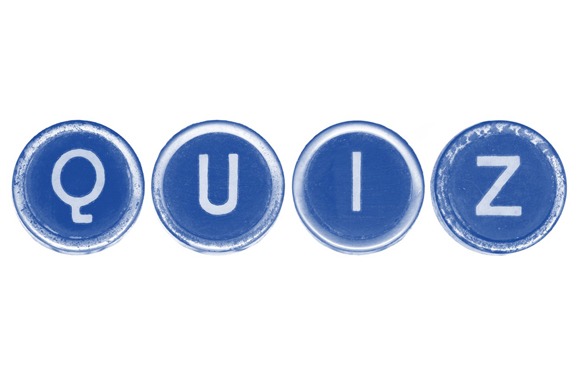Do You Deserve A High Grade In Financial Literacy?
Published Tuesday, July 18, 2017 at: 7:00 AM EDT
To test the general public's financial literacy, the American Bankers Association (ABA) Foundation posed these five questions:
Q. What is considered a good credit score?
A. Credit scores can range from 300 to 850. Generally, anything over 700 is a good score. Your score factors in your payment history, types of credit, and outstanding debt.
Q. If you must borrow $200, would you rather pay back $205 or $200 plus 5% interest?
A. $205 is better because $200 plus 5% interest comes out to $210.
 Q. You have $1,000 in a savings account earning 2% interest a year. After two years, how much would you have?
Q. You have $1,000 in a savings account earning 2% interest a year. After two years, how much would you have?
A. The savings would grow to $1,040.40 by the end of the second year because of compounding interest.
Q. If you're investing, is it safer to put your money into a single holding or multiple assets?
A. It's safer to put money into multiple assets. Through diversification, your risk of losing money decreases when money is spread across multiple investments (although there are no guarantees).
Q. Over the next 15 years, the cost of living and your income both double. Will you be able to buy more, the same or less than today?
A. The same. Inflation drives up costs, but buying power stays the same when inflation and income rise at the same rate.
How did you do on this quiz? You may need more guidance than you thought.
This article was written by a professional financial journalist for Preferred NY Financial Group,LLC and is not intended as legal or investment advice.
An individual retirement account (IRA) allows individuals to direct pretax incom, up to specific annual limits, toward retirements that can grow tax-deferred (no capital gains or dividend income is taxed). Individual taxpayers are allowed to contribute 100% of compensation up to a specified maximum dollar amount to their Tranditional IRA. Contributions to the Tranditional IRA may be tax-deductible depending on the taxpayer's income, tax-filling status and other factors. Taxed must be paid upon withdrawal of any deducted contributions plus earnings and on the earnings from your non-deducted contributions. Prior to age 59%, distributions may be taken for certain reasons without incurring a 10 percent penalty on earnings. None of the information in this document should be considered tax or legal advice. Please consult with your legal or tax advisor for more information concerning your individual situation.
Contributions to a Roth IRA are not tax deductible and these is no mandatory distribution age. All earnings and principal are tax free if rules and regulations are followed. Eligibility for a Roth account depends on income. Principal contributions can be withdrawn any time without penalty (subject to some minimal conditions).
© 2024 Advisor Products Inc. All Rights Reserved.
